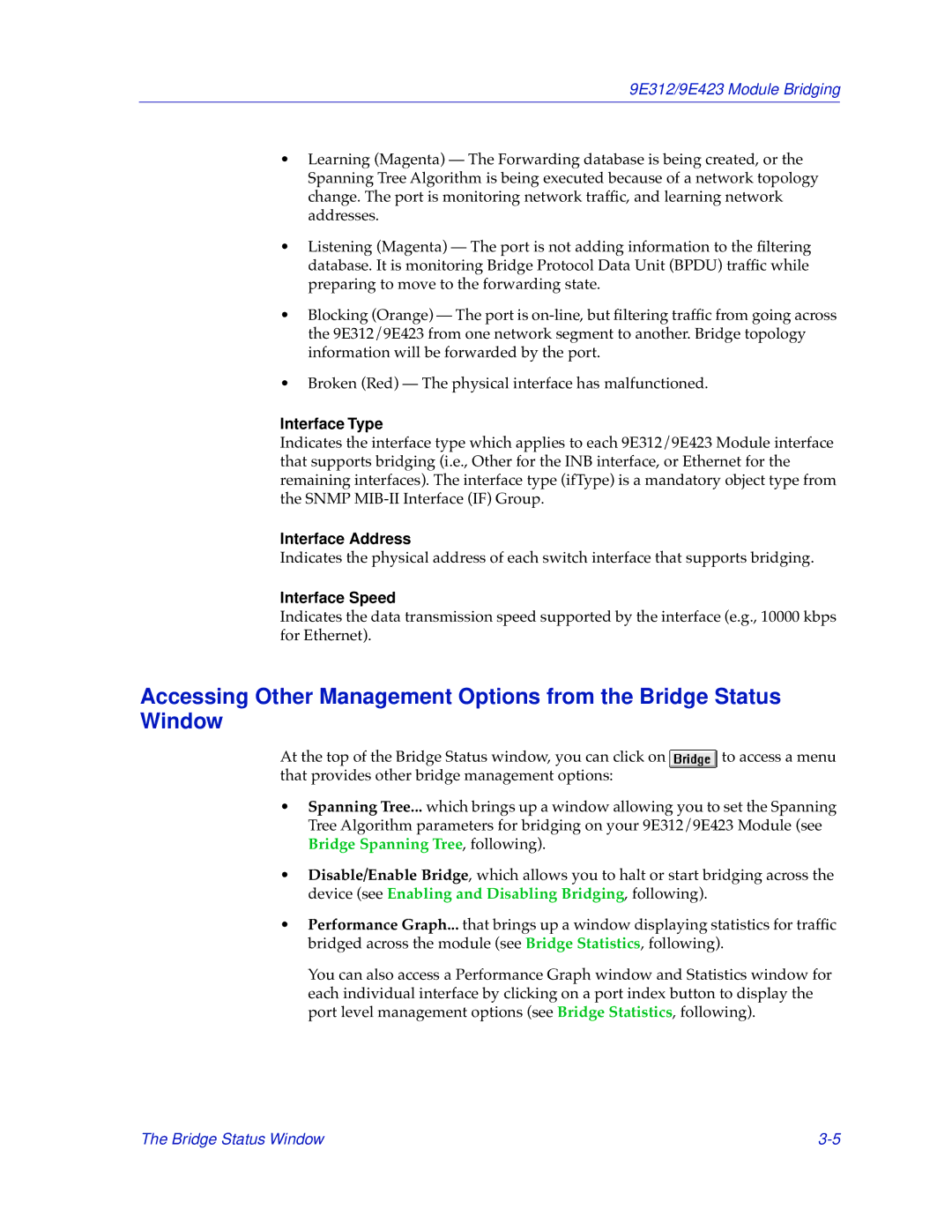9E312/9E423 Module Bridging
•Learning (Magenta) — The Forwarding database is being created, or the Spanning Tree Algorithm is being executed because of a network topology change. The port is monitoring network traffic, and learning network addresses.
•Listening (Magenta) — The port is not adding information to the filtering database. It is monitoring Bridge Protocol Data Unit (BPDU) traffic while preparing to move to the forwarding state.
•Blocking (Orange) — The port is
•Broken (Red) — The physical interface has malfunctioned.
Interface Type
Indicates the interface type which applies to each 9E312/9E423 Module interface that supports bridging (i.e., Other for the INB interface, or Ethernet for the remaining interfaces). The interface type (ifType) is a mandatory object type from the SNMP
Interface Address
Indicates the physical address of each switch interface that supports bridging.
Interface Speed
Indicates the data transmission speed supported by the interface (e.g., 10000 kbps for Ethernet).
Accessing Other Management Options from the Bridge Status Window
At the top of the Bridge Status window, you can click on ![]() to access a menu that provides other bridge management options:
to access a menu that provides other bridge management options:
•Spanning Tree... which brings up a window allowing you to set the Spanning Tree Algorithm parameters for bridging on your 9E312/9E423 Module (see Bridge Spanning Tree, following).
•Disable/Enable Bridge, which allows you to halt or start bridging across the device (see Enabling and Disabling Bridging, following).
•Performance Graph... that brings up a window displaying statistics for traffic bridged across the module (see Bridge Statistics, following).
You can also access a Performance Graph window and Statistics window for each individual interface by clicking on a port index button to display the port level management options (see Bridge Statistics, following).
The Bridge Status Window |
